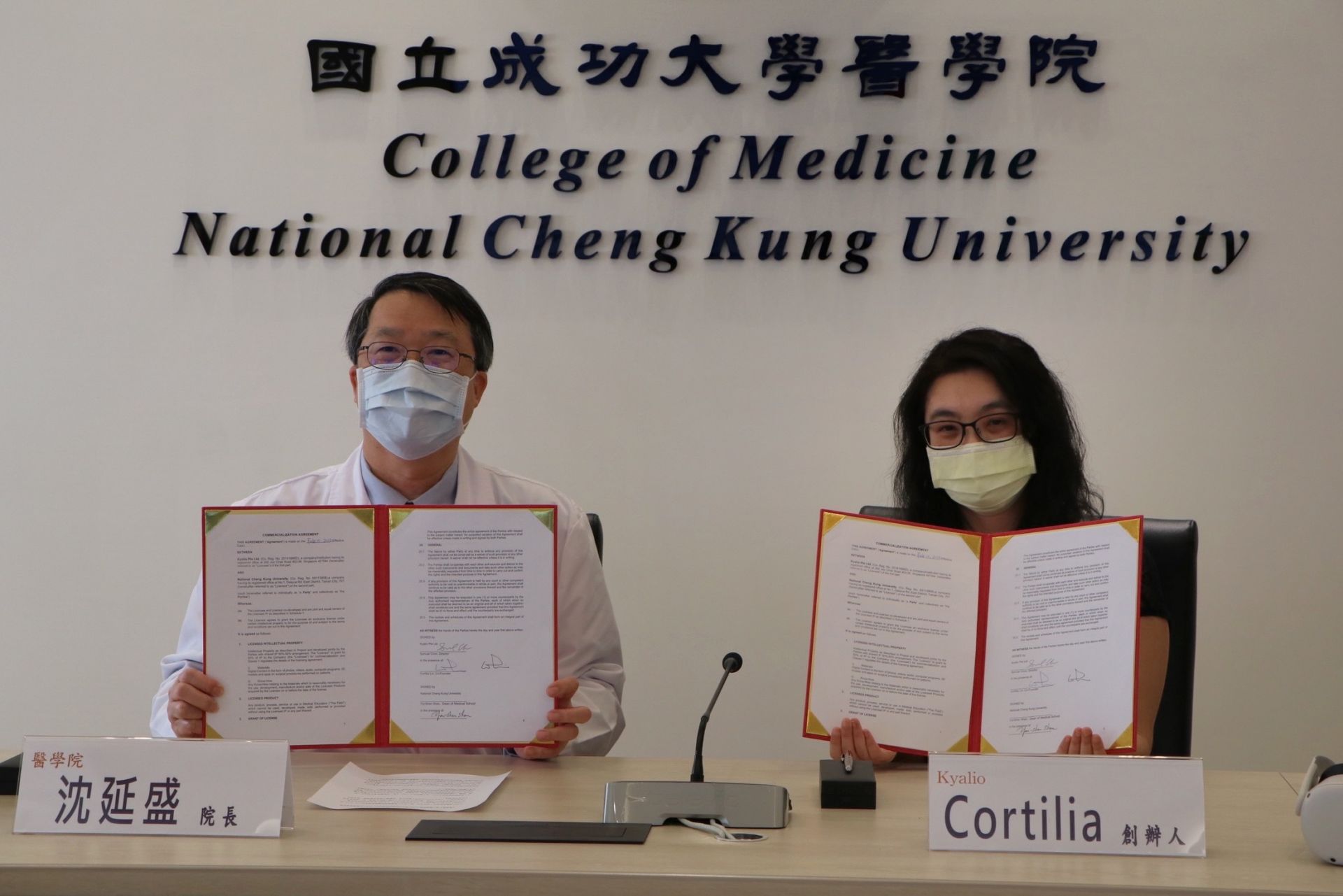SDG3
Silver Sparks Innovation! NCKU × SUSS Launch Cross-Border Co-Creation Course to Inspire a New Generation of Senior Entrepreneurs
From June 23 to 28, National Cheng Kung University (NCKU) and the Singapore University of Social Sciences (SUSS) jointly hosted the third edition of the six-day intensive English summer course titled “Transnational Co-Creation: Exploring Aging Needs and Innovative Solutions.” Departing from traditional classroom-based instruction, the course emphasized real-world learning by guiding students out into local communities. Through field observation and interaction with elders, students were encouraged to uncover genuine needs and propose practical solutions and startup ideas. The program aimed to stimulate student awareness of the emerging silver economy while activating their creative energy and product innovation potential.
The course was co-taught by Professor Li-Chuan Lin and Associate Professor Yu-Yu Chang from the College of Management, along with Assistant Professor Shih-Feng Chiu from the Interdisciplinary Program at NCKU and Dr. Kelvin Cheng Kian Tan from the Centre for Applied Gerontology at SUSS. A total of 40 students participated, including 17 international students from Singapore, Malaysia, and India, and 23 students from NCKU. The program also integrated resources from NCKU’s “Living with the Land” USR project and the Center for Sports Science and Healthy Aging. Industry experts from Dr. OrtHealth Clinic Dr. Jian-Hong Chen, I Chin Bedding, Stark Technology Inc., and the Institute for Information Industry were invited to share insights from real-world practice regarding entrepreneurial feasibility and opportunities in the aging industry.
During the course, students used tools such as the Javelin Board to identify problems and record observations. They also visited Nanmei and Changsheng Villages, where they were guided by senior docents to experience war drum performances, gaining firsthand insight into the vitality and engagement of older adults. Through in-depth interviews, students further explored the lifestyles and practical needs of the elderly. The curriculum also included a factory visit to I Chin Bedding to understand how the company integrates digital transformation and circular economy concepts in developing eco-friendly and comfortable bedding products tailored to aging populations. This provided students with a tangible example of how traditional industries can respond to the needs of an aging society and served as inspiration for future entrepreneurship.
At the opening ceremony, Director Cheng-Ta Yang of the Research Center for Humanities and Social Sciences at NCKU expressed his enthusiasm for continuing the cross-national collaboration with SUSS. He emphasized that by integrating USR field sites with practice-oriented learning, students can bridge innovative knowledge with real-world challenges and learn how to develop appropriate entrepreneurial solutions. At the closing ceremony, Dean Yeu-Shiang Huang of the College of Management praised the students’ performance, noting how, within just six days of intensive English coursework, they demonstrated impressive cross-disciplinary and cross-cultural thinking. He was pleased to see the students build team cohesion and lasting friendships and encouraged them to continue drawing strength from international exchange as they pursue future ventures.
Dr. Kelvin Cheng Kian Tan of SUSS noted that through cross-cultural interaction, students were able to reevaluate the potential of older adults, breaking through existing stereotypes and generating deep, practical, and creative solutions. Professor Li-Chuan Lin echoed this sentiment, emphasizing that field visits and industry expert dialogues enabled students to develop entrepreneurial ideas rooted in real needs, making USR field sites the ideal stage for creative practice.
On the final day of the course, a startup pitch competition was held. Eight student teams presented their project outcomes to a panel of judges invited from government, healthcare, sleep technology, and startup sectors. The judges included Section Chief Jing-Fen Tsai of the Tainan City Public Health Bureau, Professor Miao-Fen Yen from NCKU’s Department of Nursing, Director Ching-Ju Chiu from the Institute of Gerontology, Vice President Zhi-Cheng Ke of I Chin Bedding, and Vice President Ching-Yi Lin of Stark Technology Inc. The judges gave high praise to the students’ creativity and implementation potential. Vice President Zhi-Cheng Ke of I Chin Bedding remarked that the student proposals were comprehensive and showed strong potential for real-world application. Section Chief Tsai also pointed out how students had skillfully integrated innovative technology with the actual needs of older adults, demonstrating exceptional application value.
The winning team, “We bin There,” took first place with their proposal for a LINE-based virtual assistant that helps seniors with daily tasks such as taking out the trash and changing lightbulbs, thereby creating a safe and convenient home support system. The second-place team, “4JP,” designed a community integration platform called “A-Li Helper” to facilitate information sharing between local governments and residents. The third-place team, “What the health,” proposed an AI health assistant named “HOLA! Health,” which integrates health reminders, activity participation, and social features to enhance the quality of life for older adults. The judges were impressed by the students’ ability to build near-professional prototypes of interactive LINE chatbots for the elderly within such a short timeframe, demonstrating both ingenuity and speed.
NCKU student Huang shared that he originally enrolled in the course to learn about how startups are implemented, but after entering the communities, he was deeply moved by the diverse and authentic needs of older adults. The interdisciplinary teaching team provided multifaceted guidance during discussions, making the students’ ideas more complete and greatly expanding their perspectives. Eugene, a student from Singapore, happily shared his impressions, saying, “The seniors in Taiwan are so healthy and friendly. They’re always smiling when we chat, which is very different from what I expected. I’m so happy to have interacted with them—it gave me a whole new understanding of older adults.” He found the experience of taking the course in Taiwan to be highly rewarding and deeply memorable.
Many participating NCKU students expressed that the short-term course was both intensive and fulfilling, with an extremely high return on investment. Through hands-on practice and cross-cultural co-learning, they gained the ability to recognize social needs and propose feasible solutions, further strengthening their entrepreneurial mindset, sense of social responsibility, and global vision. Looking to the future, NCKU will continue to deepen field-based USR teaching and international collaboration. The university is committed to promoting human-centered innovation in education, enhancing entrepreneurship-focused curriculum design, and expanding its partnership network across the Asia-Pacific region. Together with its partners, NCKU aims to build inclusive platforms for co-creation and entrepreneurial practice, forging a new and creative path toward a more senior-friendly society.
The course was co-taught by Professor Li-Chuan Lin and Associate Professor Yu-Yu Chang from the College of Management, along with Assistant Professor Shih-Feng Chiu from the Interdisciplinary Program at NCKU and Dr. Kelvin Cheng Kian Tan from the Centre for Applied Gerontology at SUSS. A total of 40 students participated, including 17 international students from Singapore, Malaysia, and India, and 23 students from NCKU. The program also integrated resources from NCKU’s “Living with the Land” USR project and the Center for Sports Science and Healthy Aging. Industry experts from Dr. OrtHealth Clinic Dr. Jian-Hong Chen, I Chin Bedding, Stark Technology Inc., and the Institute for Information Industry were invited to share insights from real-world practice regarding entrepreneurial feasibility and opportunities in the aging industry.
During the course, students used tools such as the Javelin Board to identify problems and record observations. They also visited Nanmei and Changsheng Villages, where they were guided by senior docents to experience war drum performances, gaining firsthand insight into the vitality and engagement of older adults. Through in-depth interviews, students further explored the lifestyles and practical needs of the elderly. The curriculum also included a factory visit to I Chin Bedding to understand how the company integrates digital transformation and circular economy concepts in developing eco-friendly and comfortable bedding products tailored to aging populations. This provided students with a tangible example of how traditional industries can respond to the needs of an aging society and served as inspiration for future entrepreneurship.
At the opening ceremony, Director Cheng-Ta Yang of the Research Center for Humanities and Social Sciences at NCKU expressed his enthusiasm for continuing the cross-national collaboration with SUSS. He emphasized that by integrating USR field sites with practice-oriented learning, students can bridge innovative knowledge with real-world challenges and learn how to develop appropriate entrepreneurial solutions. At the closing ceremony, Dean Yeu-Shiang Huang of the College of Management praised the students’ performance, noting how, within just six days of intensive English coursework, they demonstrated impressive cross-disciplinary and cross-cultural thinking. He was pleased to see the students build team cohesion and lasting friendships and encouraged them to continue drawing strength from international exchange as they pursue future ventures.
Dr. Kelvin Cheng Kian Tan of SUSS noted that through cross-cultural interaction, students were able to reevaluate the potential of older adults, breaking through existing stereotypes and generating deep, practical, and creative solutions. Professor Li-Chuan Lin echoed this sentiment, emphasizing that field visits and industry expert dialogues enabled students to develop entrepreneurial ideas rooted in real needs, making USR field sites the ideal stage for creative practice.
On the final day of the course, a startup pitch competition was held. Eight student teams presented their project outcomes to a panel of judges invited from government, healthcare, sleep technology, and startup sectors. The judges included Section Chief Jing-Fen Tsai of the Tainan City Public Health Bureau, Professor Miao-Fen Yen from NCKU’s Department of Nursing, Director Ching-Ju Chiu from the Institute of Gerontology, Vice President Zhi-Cheng Ke of I Chin Bedding, and Vice President Ching-Yi Lin of Stark Technology Inc. The judges gave high praise to the students’ creativity and implementation potential. Vice President Zhi-Cheng Ke of I Chin Bedding remarked that the student proposals were comprehensive and showed strong potential for real-world application. Section Chief Tsai also pointed out how students had skillfully integrated innovative technology with the actual needs of older adults, demonstrating exceptional application value.
The winning team, “We bin There,” took first place with their proposal for a LINE-based virtual assistant that helps seniors with daily tasks such as taking out the trash and changing lightbulbs, thereby creating a safe and convenient home support system. The second-place team, “4JP,” designed a community integration platform called “A-Li Helper” to facilitate information sharing between local governments and residents. The third-place team, “What the health,” proposed an AI health assistant named “HOLA! Health,” which integrates health reminders, activity participation, and social features to enhance the quality of life for older adults. The judges were impressed by the students’ ability to build near-professional prototypes of interactive LINE chatbots for the elderly within such a short timeframe, demonstrating both ingenuity and speed.
NCKU student Huang shared that he originally enrolled in the course to learn about how startups are implemented, but after entering the communities, he was deeply moved by the diverse and authentic needs of older adults. The interdisciplinary teaching team provided multifaceted guidance during discussions, making the students’ ideas more complete and greatly expanding their perspectives. Eugene, a student from Singapore, happily shared his impressions, saying, “The seniors in Taiwan are so healthy and friendly. They’re always smiling when we chat, which is very different from what I expected. I’m so happy to have interacted with them—it gave me a whole new understanding of older adults.” He found the experience of taking the course in Taiwan to be highly rewarding and deeply memorable.
Many participating NCKU students expressed that the short-term course was both intensive and fulfilling, with an extremely high return on investment. Through hands-on practice and cross-cultural co-learning, they gained the ability to recognize social needs and propose feasible solutions, further strengthening their entrepreneurial mindset, sense of social responsibility, and global vision. Looking to the future, NCKU will continue to deepen field-based USR teaching and international collaboration. The university is committed to promoting human-centered innovation in education, enhancing entrepreneurship-focused curriculum design, and expanding its partnership network across the Asia-Pacific region. Together with its partners, NCKU aims to build inclusive platforms for co-creation and entrepreneurial practice, forging a new and creative path toward a more senior-friendly society.
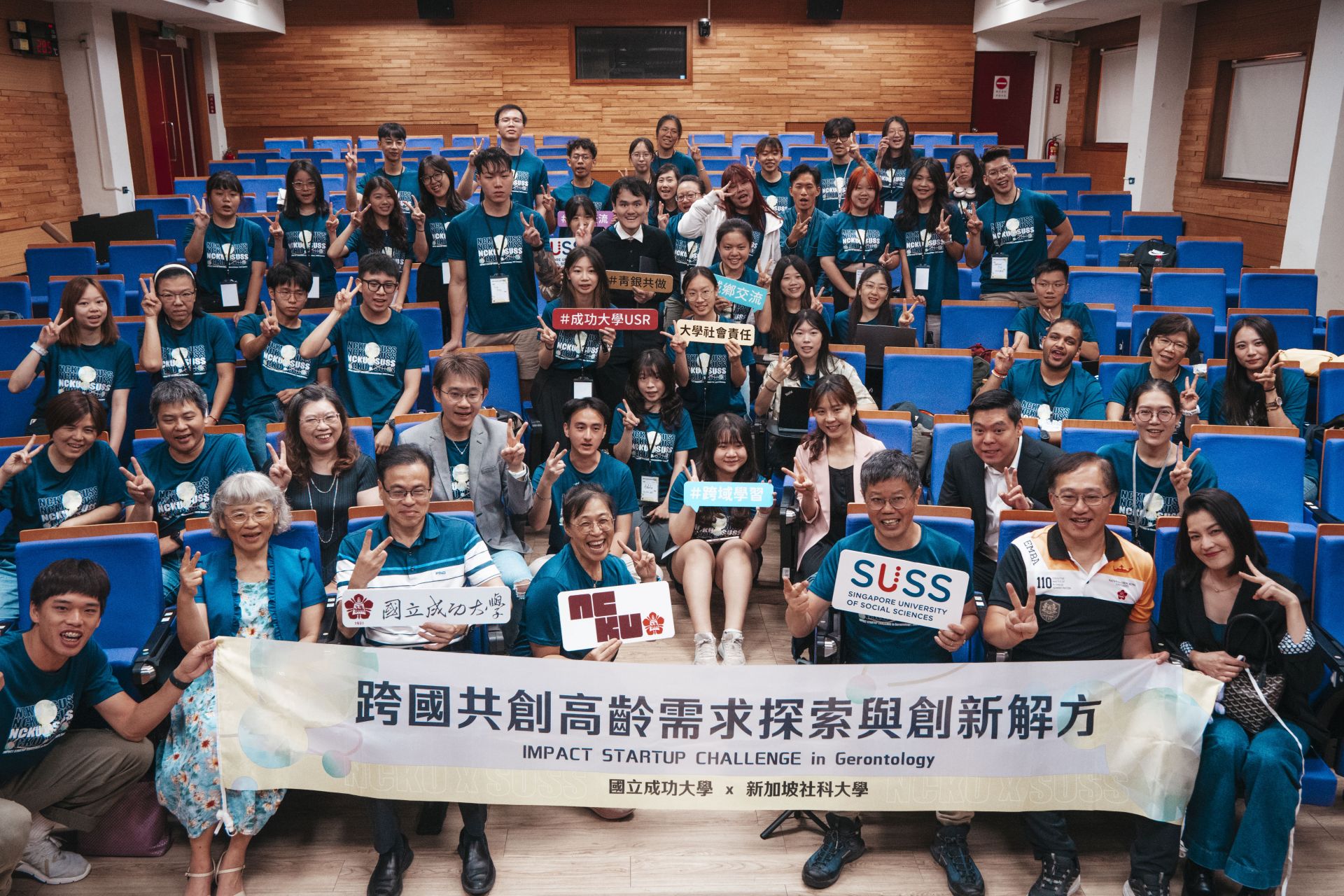
Group photo of participants at the 3rd “Cross-national Co-creation: Exploring Elderly Needs and Developing Innovative Solutions” event.
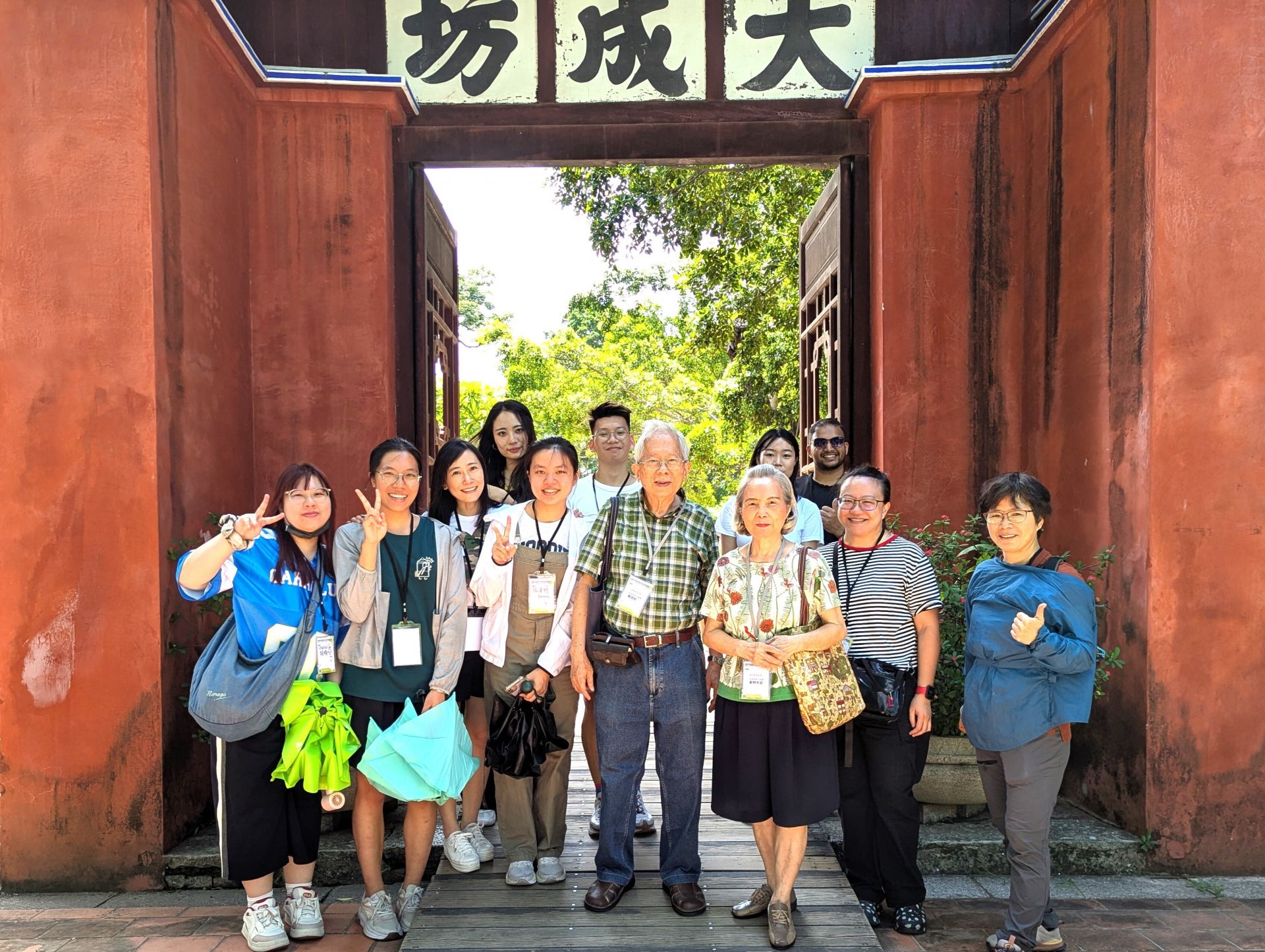
Senior docents from Nanmei Village guide students in touring local living spaces.
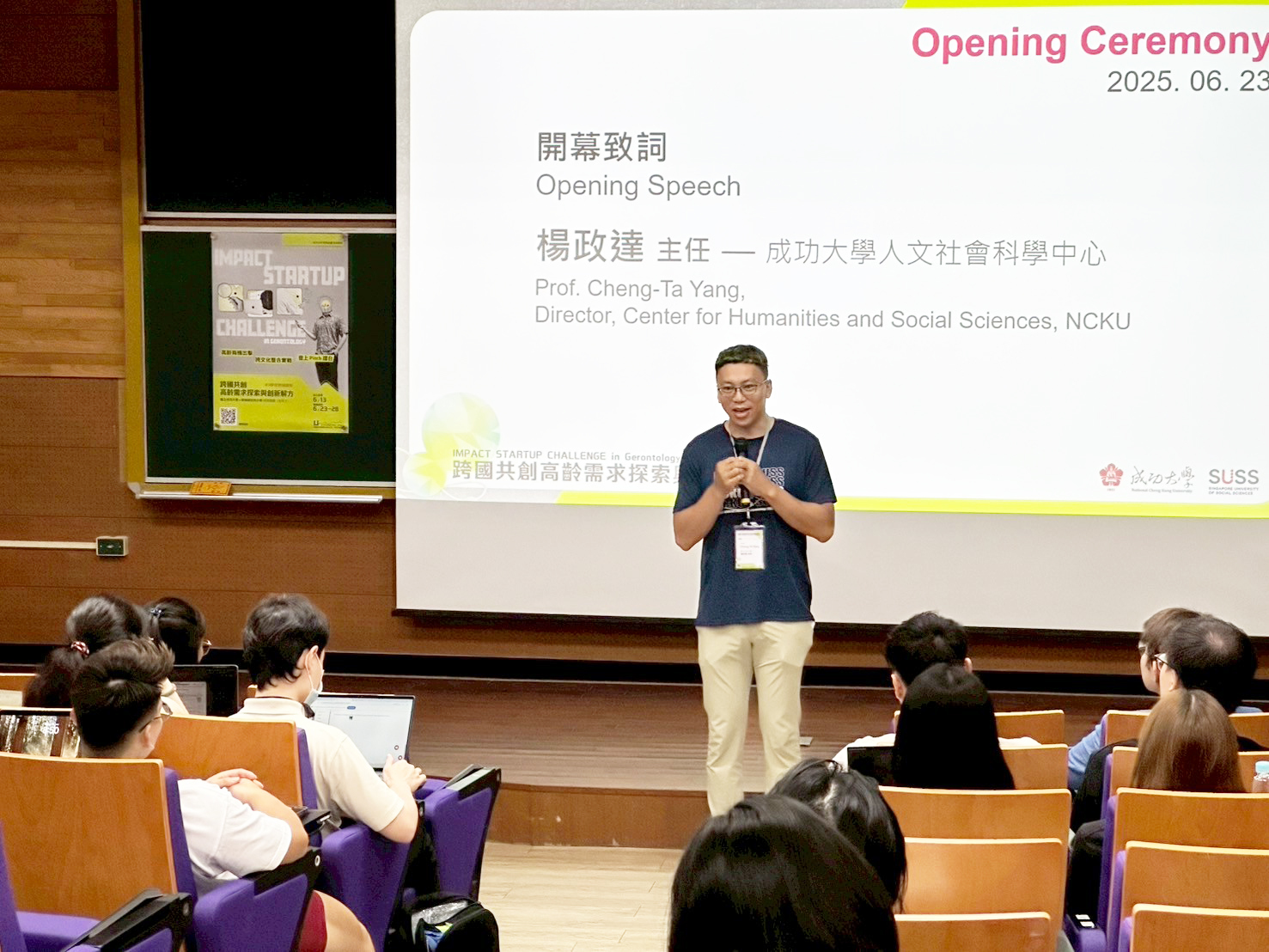
Director Cheng-Ta Yang of the Research Center for Humanities and Social Sciences hopes that through the integration of USR field sites and practice-oriented learning, students will be able to connect innovative knowledge with real-world social contexts.
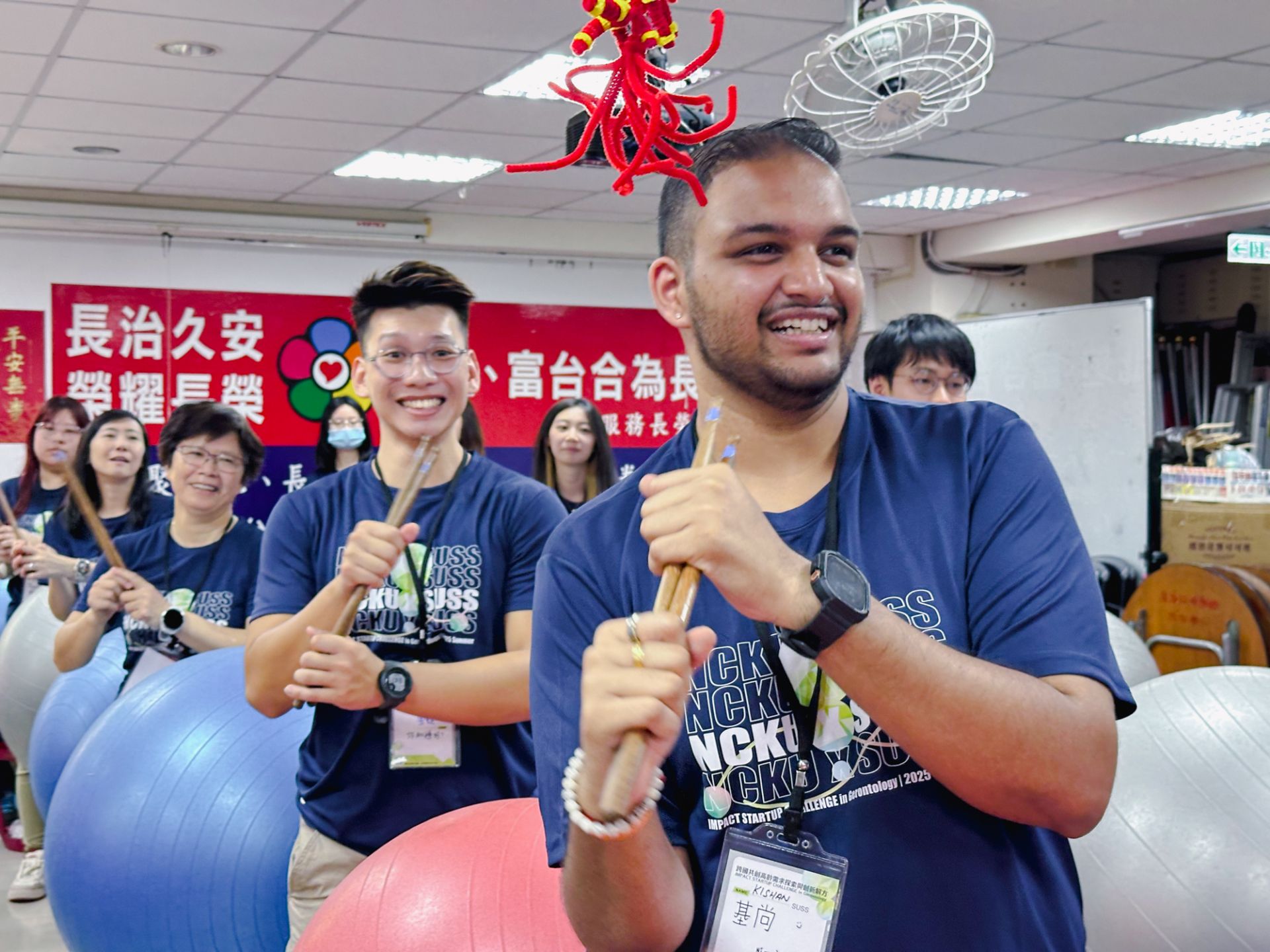
Students joined elders from Changsheng Village in experiencing a war drum activity.
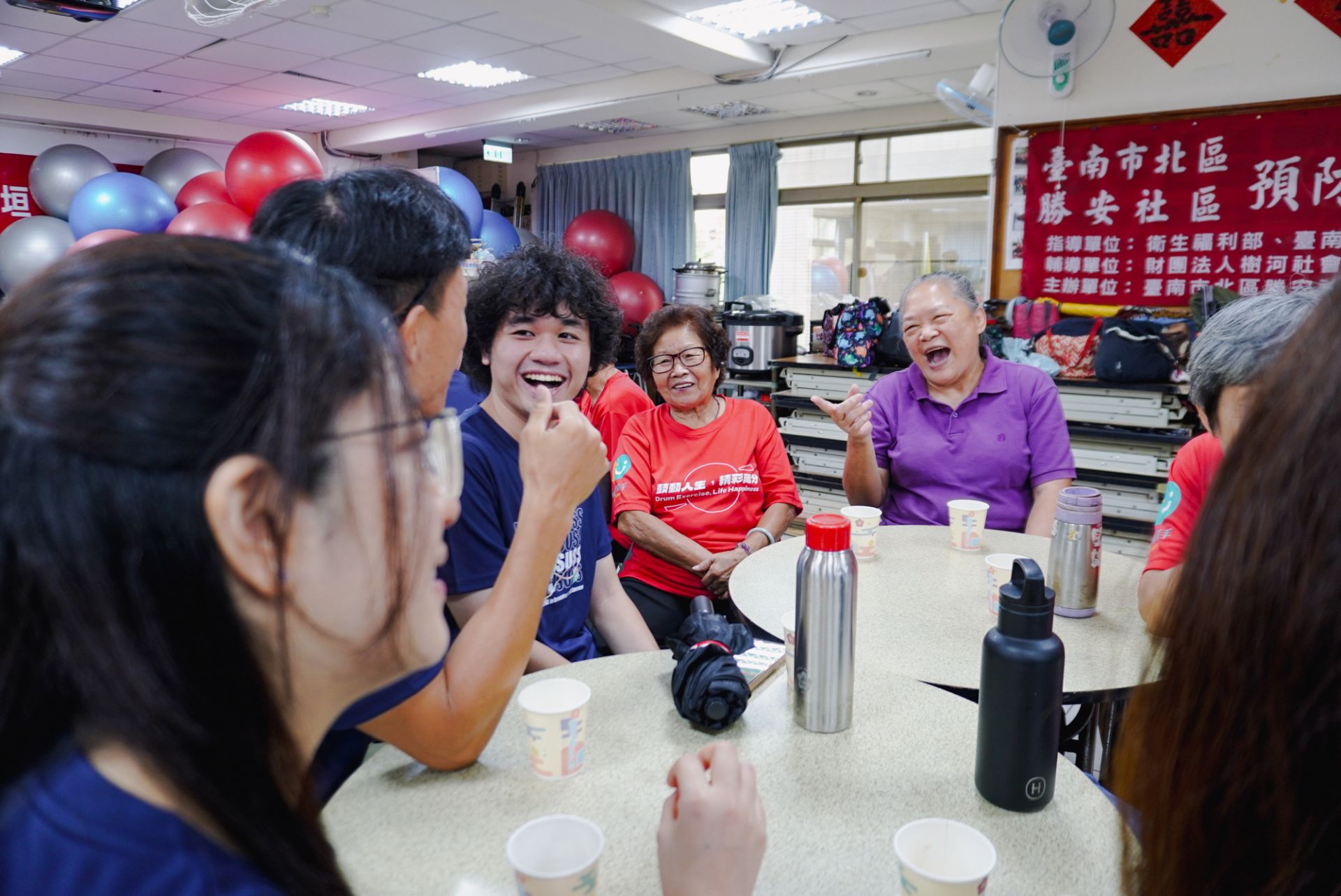
Students interviewed elders to understand their lifestyles and needs.

SDG33rd APBA International Conference Highlights Advances in Healthcare and Artificial Intelligence
View more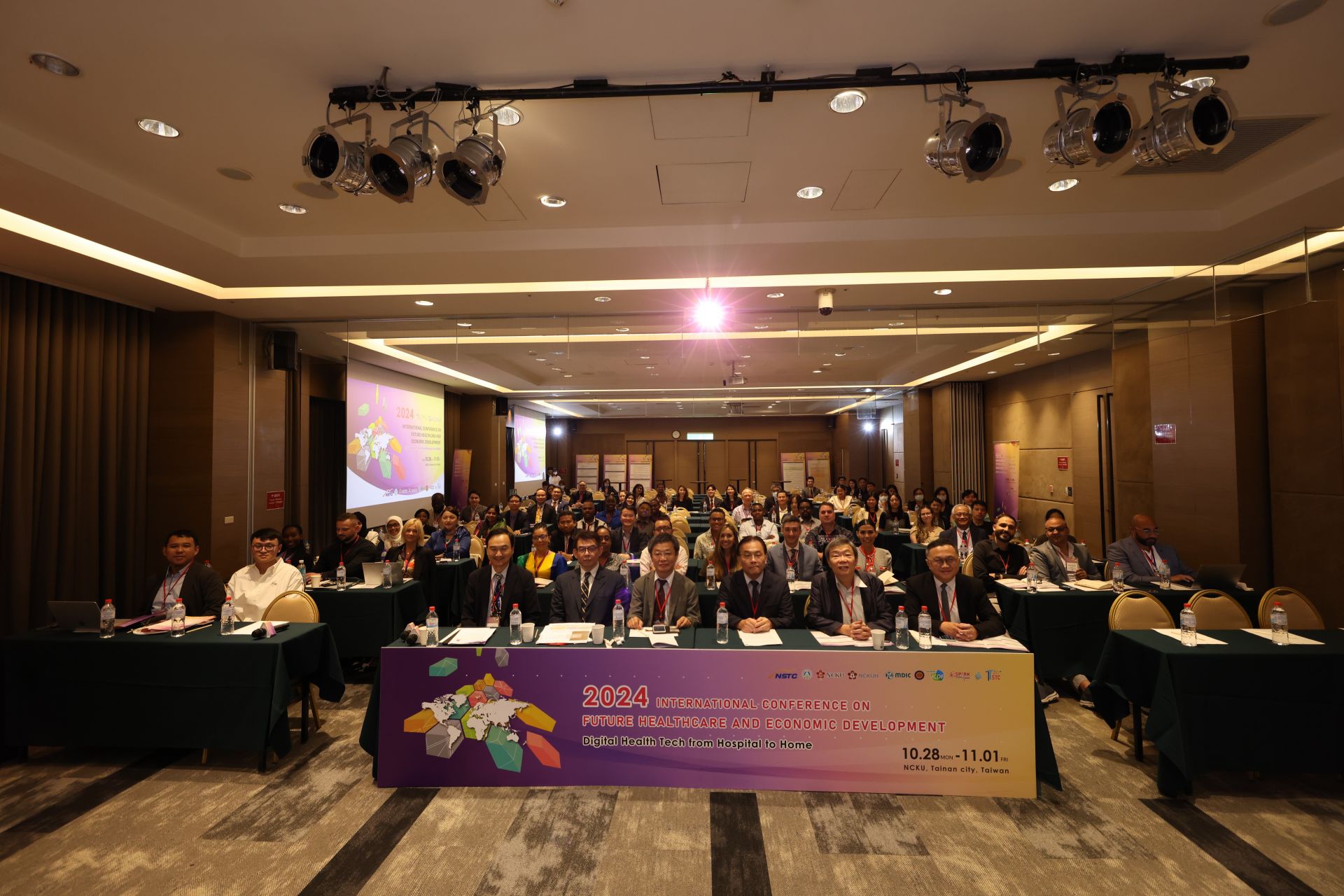
SDG3Experts from 33 countries gathered at NCKU to shape a sustainable smart health and medical cooperation ecosystem
View more